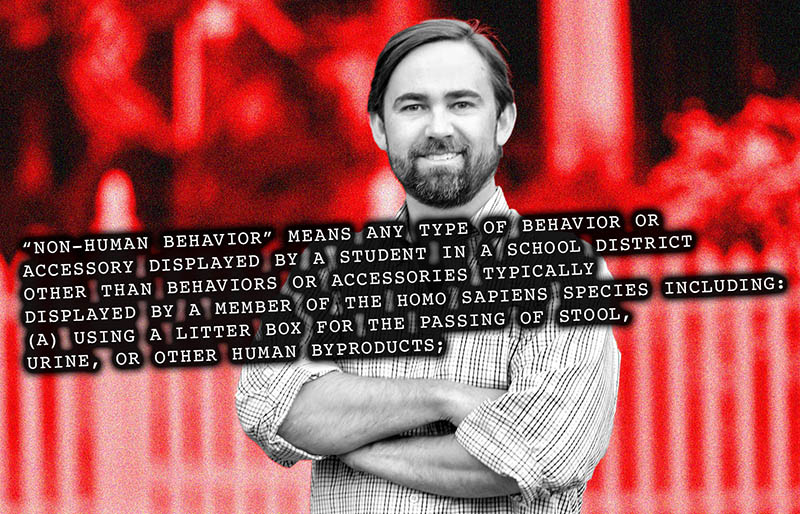Texas lawmakers pushing anti-marriage equality measures
Legislators seek to undercut any pro-marriage equality advances, including fining county clerks who marry same-sex couples

The Texas Senate on Monday approved a measure protecting anyone who refuses to accommodate same-sex marriage from the threat of legal action. The bill is part of a trio of measures aimed at undercutting any favorable decisions that would legalize or seek to legitimize same-sex marriages in the Lone Star State.
Republican legislators have been fervent in their defense of the state’s 2005 voter-approved constitutional amendment banning the recognition of same-sex marriages or any legal relationship that emulates a marriage. They hope to block, by any means possible, any attempts to bring marriage equality to the Lone Star State, even if the U.S. Supreme Court issues a sweeping decision in favor of it.
The measures introduced by the House and Senate imitate laws introduced in other states, such as Indiana and Arkansas, known as Religious Freedom Restoration Acts, or RFRAs. RFRAs are intended to allow people who object to certain actions that violate their religious conscience, from taking part in or aiding the commission of such actions. In the case of same-sex marriage, it allows individuals and businesses to refuse to assist in the procurement of goods or services to be used at a same-sex wedding ceremony or reception.
Bill SB 2065 protects a religious organization, an organization “supervised or controlled by or in connection with” a religious organization, an employee of a religious organization, or clergy or minister from having to solemnize a marriage. The bill goes further, exempting those parties from threat of legal action by allowing them to refuse to provide services, accommodations, facilities, goods or other privileges if the union in question violates a person’s “sincerely held religious belief.” The measure also prohibits the state or local counties or cities from penalizing or withholding benefits or privileges such as tax exemptions, government contracts, grants or licenses, from organizations or individuals who refuse to provide services to same-sex couples.
Democrats tried to introduce two amendments to the bill, both of which were rejected. The first would have specified that a minister could only refuse to solemnize or provide services to a same-sex wedding when acting in an official capacity as a minister, rather than as an agent of the state, such as a county clerk. The second amendment would have required businesses that reserve the right of refusal to provide services to post notice of that refusal, and the accompanying religious objection, in their place of business and on their website. The amendment would have also required that notice to specifically state to whom they are refusing service.
All but one Democrat voted for the first amendment, while all 11 Democrats in the chamber voted for the second. The final bill passed 21-10, with Democrat Eddie Lucio, Jr. (D-Brownsville) voting with the Republicans.
An identical bill, HB 3567, has been introduced in the House of Representatives, passing its second reading on Tuesday. The bill was scheduled to be voted after press time on Tuesday, but is widely expected to pass, as did its Senate counterpart.
The third measure in the trio, HB 4105, is the most far-reaching and by far the most defiant, as it prevents the recognition of same-sex marriages even in the case of the Supreme Court issuing a decision legalizing marriage equality, penalizing those county clerks who decide to move forward with same-sex marriages.
The so-called “Preservation of Sovereignty and Marriage Act,” as written, says it seeks to “affirm that the definition and regulation of marriage is within the sole authority and realm of the separate states and the people within those states.” In practice, the bill prohibits the state or any political subdivision from using funds to issue, enforce, or recognize a marriage license or declaration of an informal marriage for a same-sex couple. It also prevents state employees or officials from issuing licenses, or from using funds to enforce any order requiring the issuance or recognition of a same-sex union. The last point is widely seen as an attempt to undermine what some believe may end up being a decision in favor of the right of same-sex couples to marry.
“This end-run play to subvert a Supreme Court ruling on same-sex marriage, to which the State of Texas would be constitutionally bound, makes Texas a laughingstock and flies in the face of Texas values,” Teri Burke, the executive director of the American Civil Liberties Union (ACLU) of Texas, said in a statement reacting to the bill’s introduction. “Reasonable Texas legislators need to step forward and stop this shameful attack on LGBT Texans.”
But another provision in the bill — viewed by many as the most pernicious and mean-spirited — goes after individual county clerks who issue licenses or recognize same-sex marriages. Any document “associated with a union other than a union between one man and one woman” must be provided to the attorney general. If a marriage license fee was collected for a same-sex union, the county clerk must pay $30 to the state comptroller for each occurrence. An informal declaration of marriage for a same-sex union would set a county clerk back $12.50 for each occurrence. The money collected from the penalties enforced on the county clerks is to be deposited into the state’s general revenue fund.
The bill also states that if it takes effect before June 1, it not only applies to same-sex marriages going forward, but to other same-sex marriages that were previously licensed, such as those permitted in Travis County, which includes the state capital of Austin, beginning in February of this year.
Other LGBT rights advocates decried HB 4105, in particular, as out-of-touch and motivated by animus.
“This bill has nothing to do with Texas values and has everything to do with enshrining discrimination into state law,” said Marty Rouse, national field director for the Human Rights Campaign (HRC). “At a moment when people across this state — and across this country — are calling for people to be treated fairly, the Texas Legislature must not send this state backwards with dangerous and hostile Indiana-style legislation.”
Chuck Smith, the executive director of Equality Texas, also weighed in.
“Extremist lawmakers in Texas are trying to preserve the right to discriminate no matter what the Supreme Court might say about marriage,” Smith said. “Passing this bill would make Texas look intolerant and unwelcoming and would harm the state. It must be rejected.”
If, as expected, all three bills receive two-thirds support in each chamber — or 100 votes in the House and 21 in the Senate — they take effect immediately, as allowed by the Texas Constitution. If the bills do not meet the two-thirds threshold in either chamber, they won’t take effect until Sept. 1.
Support Metro Weekly’s Journalism
These are challenging times for news organizations. And yet it’s crucial we stay active and provide vital resources and information to both our local readers and the world. So won’t you please take a moment and consider supporting Metro Weekly with a membership? For as little as $5 a month, you can help ensure Metro Weekly magazine and MetroWeekly.com remain free, viable resources as we provide the best, most diverse, culturally-resonant LGBTQ coverage in both the D.C. region and around the world. Memberships come with exclusive perks and discounts, your own personal digital delivery of each week’s magazine (and an archive), access to our Member's Lounge when it launches this fall, and exclusive members-only items like Metro Weekly Membership Mugs and Tote Bags! Check out all our membership levels here and please join us today!























You must be logged in to post a comment.